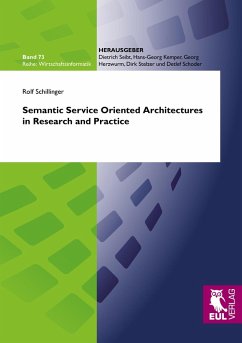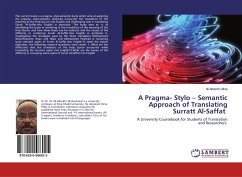Service Oriented Architectures (SOAs) have become one of the most talked about aspects of modern software architecture design. This book argues that SOAs are not as innovative as often touted, but instead draw from a considerable number of predecessor architectural styles. Additionally, SOAs lack sound means of automating service discovery, composition, and orchestration. Using readily available semantic technologies, thus transforming SOAs to Semantic SOAs (SSOAs), is one way of addressing this deficit. After covering basic foundations of SOAs and surveying knowledge based technologies in the context of web services, the book describes a reference process for the design and implementation of a SSOA. Special attention is paid to possibilities created by introducing knowledge based technologies into the initial step of requirements engineering before using these elicited requirements to construct and describe a generic SSOA in a number of appropriate views and perspectives. Security considerations in the SSOA are also dealt with accordingly. Especially to answer the question of current feasibility of SSOAs, requirements, architecture, and implementation considerations of real-world research projects centered around SSOAs are described in all their detail. A comparative evaluation of these research projects with a hypothetical client/server system with the same functionality reveals the value already added by currently implementable semantic additions.
Bitte wählen Sie Ihr Anliegen aus.
Rechnungen
Retourenschein anfordern
Bestellstatus
Storno









